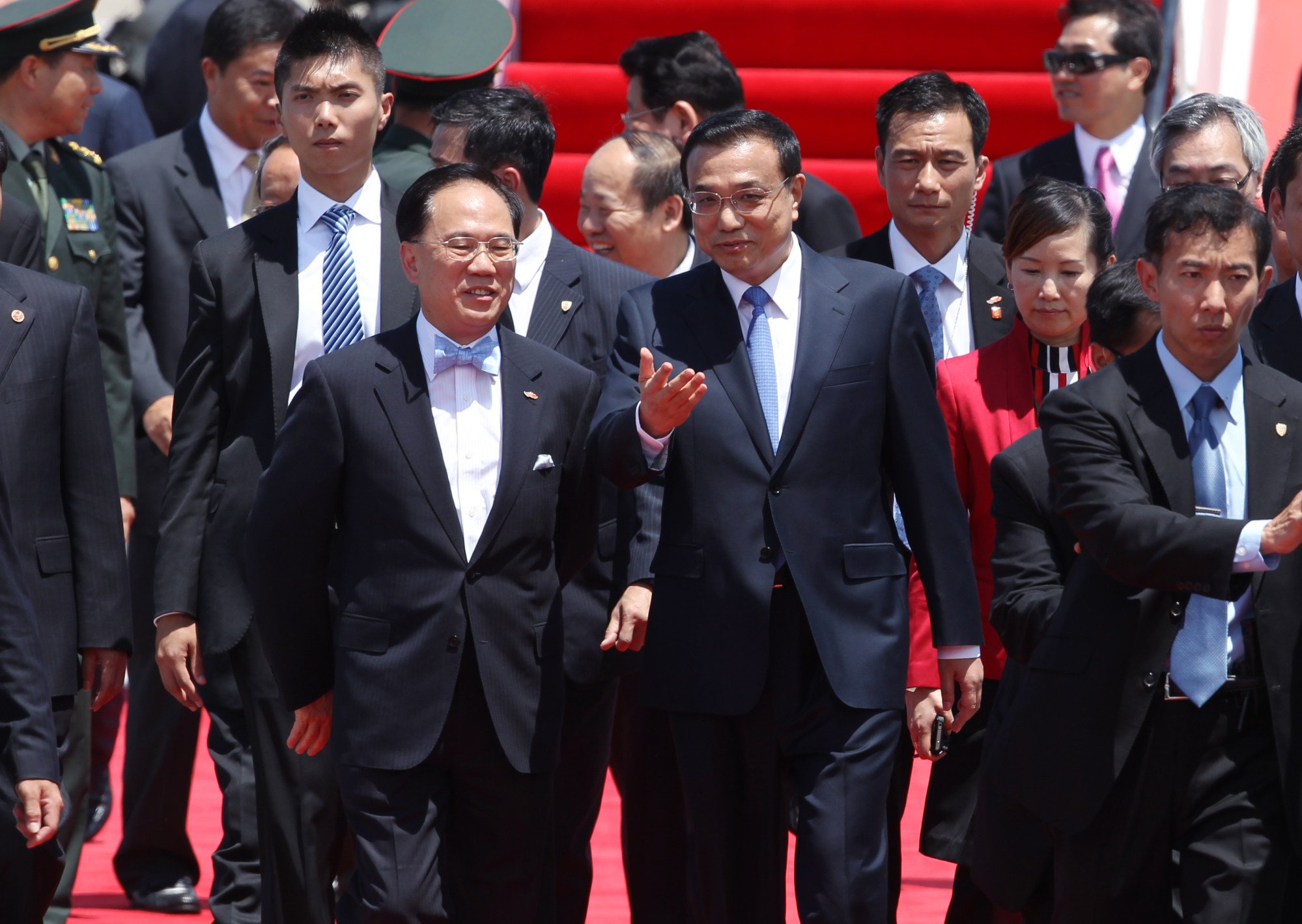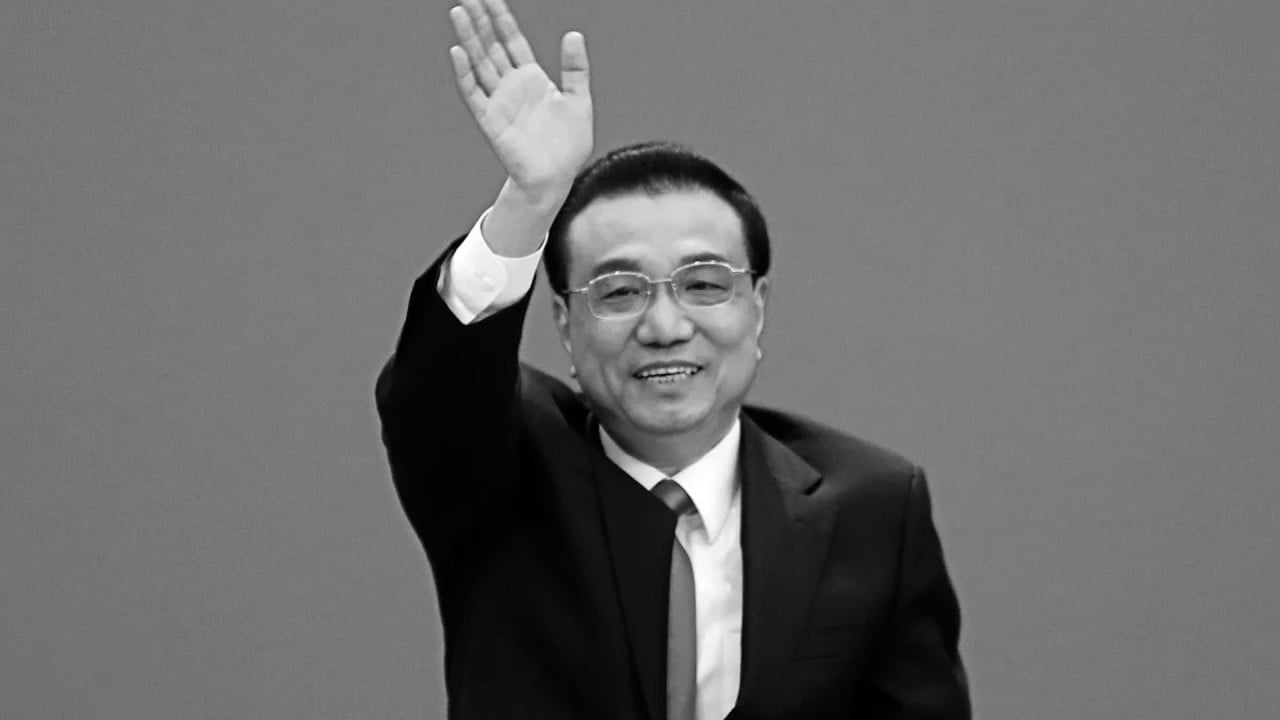
Hong Kong politicians remember ‘amiable’ ex-Chinese premier Li Keqiang after sudden death, praising his support for city’s economic integration
- Veteran political figures Tam Yiu-chung and Lau Siu-kai pay tribute to former Chinese premier Li Keqiang, who died suddenly in Shanghai at the age of 68
- Li, who last visited Hong Kong officially in 2011, remembered for ‘strong backing’ of city’s economic integration with mainland China and support for financial hub status
Hong Kong politicians have paid tribute to former Chinese premier Li Keqiang following his death, describing him as an “amiable” leader who strongly backed the city to strengthen its economic integration with mainland China and its status as an international financial hub.
Li, who was 68, died suddenly in Shanghai in the early hours of Friday morning following a heart attack the day before, according to state broadcaster CCTV. He last visited Hong Kong in an official capacity in 2011 when he was vice-premier, speaking at the city’s oldest university and announcing more than 30 measures to boost the local economy.
On Friday, senior officials including health secretary Lo Chung-mau, security chief Chris Tang Ping-keung and home and youth affairs minister Alice Mak Mei-kuen wore black at separate press conferences about this week’s policy address.
Veteran politician Tam Yiu-chung, the city’s former sole delegate to the apex body of the national legislature, said he was shocked and saddened to hear the news, noting Li had “always offered strong backing” to Hong Kong’s economic development.
Hong Kong ‘set to thrive’, Chinese premier says as he pledges Beijing’s support
“Li fully acknowledged the vibrancy brought to Hong Kong by the ‘one country, two systems’ principle, highlighted the great potential of further cooperation between the city and the mainland, and floated ideas to boost these ties,” Tam said.
“He also underscored the importance of consolidating Hong Kong’s status as an international financial centre and the world’s leading offshore yuan hub. All of these are very encouraging to us.”
He described Li as an “amiable” leader, recalling an episode a few years ago in the Great Hall of the People in Beijing when the pair shared a lift. Tam was with Li Fei, former chairman of the Constitution and Law Committee of the National People’s Congress (NPC).
“Li Fei was hoping to introduce me to Li, but the premier said: ‘I know him. We have already met.’ He was very amiable,” Tam said.
Former Basic Law Committee vice-chairwoman Maria Tam Wai-chu called Li a premier with “unquestionable leadership” who helped lead the nation out of poverty, overcome the Covid-19 pandemic and oversee Hong Kong’s integration with the mainland.
“He always insisted the one country, two systems principle was a good system and underscored Hong Kong’s advantage of enjoying strong support of the mainland and being closely connected to the world,” Tam said.
Li was also known to Hongkongers for the work report he delivered to the NPC as premier during the annual “two sessions” in Beijing. Li would regularly mention Hong Kong and reiterate Beijing’s determination to implement the one country, two systems principle, along with references to “Hong Kong people governing Hong Kong” and the city enjoying a “high degree of autonomy”.
In his final work report issued in March, Li said Beijing would support Hong Kong’s economic growth and maintain its long-term prosperity, and highlighted the promotion of the Greater Bay Area as part of efforts to ensure the global financial centre was “set to thrive”.
The then outgoing leader also underscored the need to uphold constitutional order in Hong Kong and the principle of “patriots” administering local affairs, after noting Beijing had exercised effective jurisdiction over the city by enacting the national security law and overhauling its electoral system.
Chinese Premier Li Keqiang urges Hong Kong to meet needs of nation, local residents
Observers at the time said Li’s work report signalled Beijing had set economic growth as the city’s main task for the year with the return of social stability following the anti-government protests that erupted in 2019.
As premier, Li also received the chief executive annually in December for duty visits to the country’s capital.
At the height of the 2019 social unrest, Li complimented then chief executive Carrie Lam Cheng Yuet-ngor for her efforts combating the protests that had dealt a “serious blow” to Hong Kong’s economy, but told the leader she had her work cut out for her.
“The city’s government must continue to make efforts in stopping violence and ending chaos in accordance with the law, and restore order,” Li said. “It must also study with urgency the deep-rooted conflicts and problems in Hong Kong’s socio-economic development, and safeguard the city’s long-term prosperity and stability.”
Last December, Li urged Chief Executive John Lee Ka-chiu to ensure the city met the country’s needs and further integrated into the national development plan while improving the well-being of local residents, as he also acknowledged the leader’s hard work in resolving deep-seated problems.

Lau Siu-kai, a consultant at Beijing’s semi-official think tank, the Chinese Association of Hong Kong and Macau Studies, said Li’s views about Hong Kong were not easily discerned as key governance decisions and policy directions were made by the Central Committee of the Chinese Communist Party under President Xi Jinping’s leadership. Li was more an executor of the policies, Lau said.
“Li seldom made remarks on the political situation of Hong Kong but focused more on its economic development, especially the city’s integration with the mainland and the internationalisation of the yuan,” he said.

In 2011, Li, then vice-premier, embarked on a three-day visit to Hong Kong during which he said he hoped he would deepen his understanding of the city “by visiting, seeing and listening”.
He announced a range of measures to support the local economy, boost investor sentiment and strengthen the city’s role in the internationalisation of the yuan.
He also attended a ceremony marking the centenary of the University of Hong Kong (HKU), where he announced the launch of a new initiative to allow as many as 1,000 students and academics to participate annually in exchange programmes and research projects with mainland educational institutions.
Li Keqiang: in China and overseas, tributes flow for warm, capable former premier
Breaking with regular protocol for Chinese leaders, Li switched to English to lavish praise on the institution. “HKU is for Hong Kong, for attracting talent and educating people to promote Hong Kong’s prosperity. HKU is for China. It has become a key higher education institution in China, playing an increasingly important role in China’s development,” he said.
But the university visit was also marked by extra-tight security arrangements, as a huge police presence blocked key campus entrances. Three protesters ended up locked in a staircase for an hour as they tried to enter, prompting an uproar from some staff and students who questioned the university’s independence.
The school council at the time set up a panel to review the arrangements, with then vice-chancellor Professor Tsui Lap-chee also apologising over the incident at least four times.


